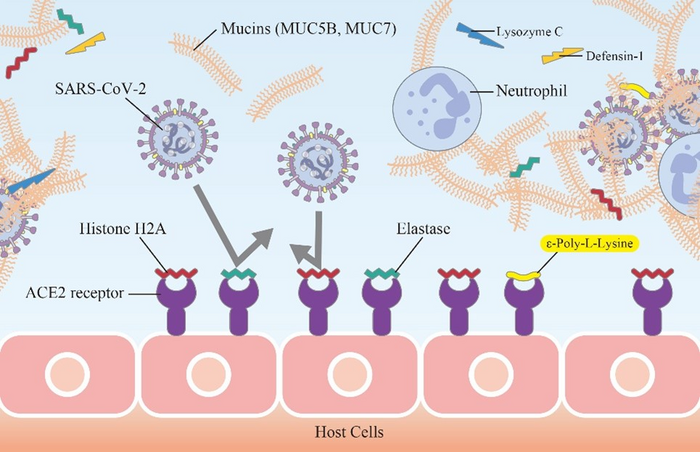The novel coronavirus (SARS-CoV-2) has spread around the world at an unprecedented rate, evading containment countermeasures. Understanding the mechanisms by which SARS-CoV-2 successfully evades the body’s defense systems is essential to reduce the transmission of this virus.

Credit: Osaka Metropolitan University
The novel coronavirus (SARS-CoV-2) has spread around the world at an unprecedented rate, evading containment countermeasures. Understanding the mechanisms by which SARS-CoV-2 successfully evades the body’s defense systems is essential to reduce the transmission of this virus.
An Osaka Metropolitan University research group led by Associate Professor Misako Matsubara of the Department of Veterinary Science, Graduate School of Veterinary Science, and Specially Appointed Professor Katsutoshi Yoshizato of the Department of Hepatology, Graduate School of Medicine, suspected that the innate immune system may prevent SARS-CoV-2 infection; the onset and severity of novel coronavirus (COVID-19) infection are age-dependent, as are the volume and quality of saliva, which are significantly reduced in the elderly.
SARS-CoV-2 is transmitted when the spike protein S1 on the viral envelope binds to the angiotensin-converting enzyme 2 (ACE2) receptor on the membrane of human cells. Saliva and oral cells are important transmission routes for COVID-19 infection. The research group has shown that saliva from SARS-CoV-2 uninfected (healthy) individuals interferes with S1 and ACE2 binding in a concentration-dependent manner. They identified four proteins in saliva that bind to ACE2 and among these proteins, neutrophil elastase and histone H2A markedly inhibit the binding of S1 and ACE2. Neutrophil elastase and H2A are positively charged proteins, which act as a barrier against SARS-CoV-2 binding by covering the negatively charged S1 binding site of ACE2. The research group also showed that cationic polypeptides such as ε-poly-L-lysine are similarly effective in preventing the binding of S1 to ACE2.
This research is the result of a joint study by the Osaka Metropolitan University Graduate School of Medicine and the Graduate School of Veterinary Science, and Cosmo Bio Co., Ltd., and was published online in The Journal of Biochemistry on July 6, 2022.
Professor Yoshizato concluded, “This study shows that salivary neutrophils are moderately activated by indigenous microorganisms and continuously release a variety of proteins, among which elastase and histone H2A contribute to self-defense against SARS-CoV-2 infection by masking the ACE2 receptor on host cells. We believe that our findings will contribute to the development of methods to not only prevent or treat COVID-19 infection, but also prevent unknown viruses from infecting humans in the future at the innate immune level.”
###
About OMU
Osaka Metropolitan University is a new public university established in April 2022, formed by merger between Osaka City University and Osaka Prefecture University. For more research news visit https://www.upc-osaka.ac.jp/new-univ/en-research/research/ or follow @OsakaMetUniv_en and #OMUScience.
DOI
10.1093/jb/mvac054
Method of Research
Experimental study
Subject of Research
Cells
Article Title
Cloaking the ACE2 receptor with salivary cationic proteins inhibits SARS-CoV-2 entry
Article Publication Date
6-Jul-2022




